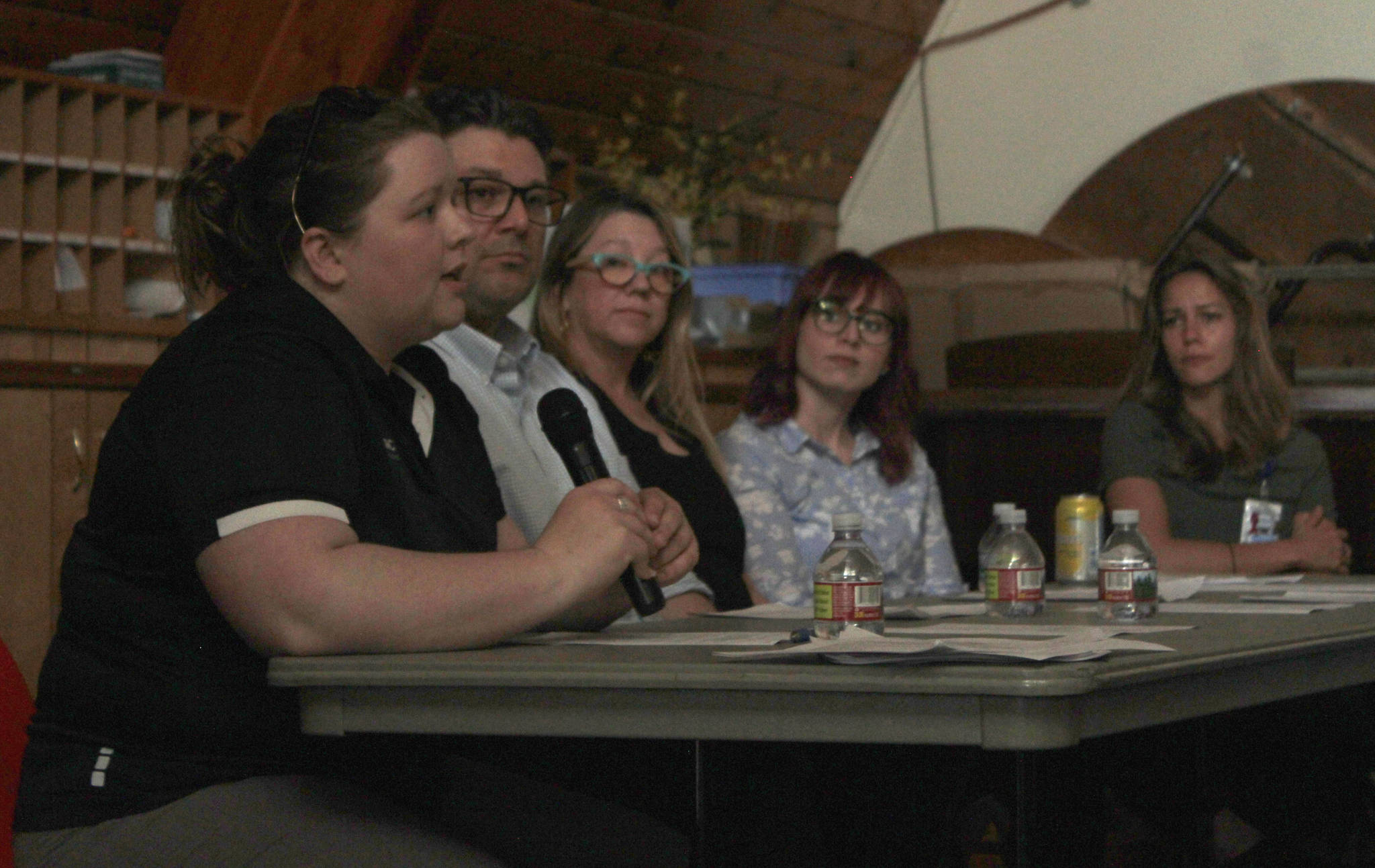Assistant Municipal Attorney Emily Wright stood up at Wednesday night’s Juneau Reentry Coalition (JREC) community meeting and expressed her concern.
Incarcerated defendants, she said, sometimes plead guilty and say they’re willing to go into treatment. Wright said that sounds great in theory, but once people are released from Lemon Creek Correctional Center, they have no plan and no transportation to go to treatment.
“By the time they hit Breeze-In, they’re moving on,” Wright said referring to the drive away from the prison. “It’s very crushing because they get picked up on a warrant and they sit in jail.”
Wednesday’s meeting was about that very issue, as JREC members wanted to hear feedback from community members about their concerns about people exiting jail and trying to get into treatment. Teri Tibbett, the chair of JREC’s Behavioral Health and Wellness Workgroup, said the group’s work has only just begun.
“We have been doing some work to try to get a list of some of the gaps and barriers related to serving justice-involved individuals in Juneau who have behavioral health disorders,” Tibbett said.
With these barriers in mind, the workgroup is putting together a lengthy list of recommendations for community organizations about how best to serve people re-entering society after a prison stay. One section of that list, which was handed out to attendees at Wednesday’s meeting, has ideas for how to help people immediately get into treatment after they’re released from prison.
These initial recommendations include getting a case management service for people while they’re incarcerated to assess them and communicate with local services. Representatives from some of those services — including Front Street Health Center, JAMHI Health and Wellness and Bartlett Regional Hospital — said that if there were some kind of way to communicate with inmates a couple weeks before they were released, they would be willing to work with them to set up an appointment as soon as possible after their release.
JREC Chair Don Habeger said the coalition hasn’t yet delved deeply into the issue of how to connect soon-to-be-released inmates with treatment services, but he suspects there to be much more buzz around the topic.
“I think that issue will likely be hot,” Habeger said, “because I’ve heard bits and pieces of it before, of losing somebody back into an addictive lifestyle just after release. You’ll hear that anecdotally around the community. I suspect to be more engaged in that.”
There are eight workgroups in JREC, and all of them will compile a list of recommendations for JREC’s steering committee, Habeger said. The steering committee will examine those recommendations, as for community feedback and then make a decision about how to proceed.
“Then that will give us new direction,” Habeger said. “Let’s figure out how to do this.”
According to numbers provided by the coalition, two out of three inmates return to custody within the first three years of their release. Citing Department of Corrections statistics, a JREC factsheet says that 80 percent of offenders seen by DOC behavioral health staff are diagnosed with a substance use disorder, and more than 3,200 people participated in substance abuse treatment inside Alaska’s prisons in 2016. According to DOC numbers, there were about 5,600 people in prison on any given day in 2016.
JREC aims to get representatives from community organizations together and collaborating on ways to make a transition from prison into the community as seamless as possible. The challenges that face those entering society are daunting, as attendees and speakers at Wednesday’s meeting spoke about.
Sasha Moore, the Healthcare for the Homeless clinic manager for Front Street Clinic, said she shares in the frustrations of how long it takes to get people into treatment. They need to be able to communicate with inmates in order to learn about whether they have insurance and what kind of treatment they need.
If someone doesn’t have insurance, Moore said, that adds to the paperwork they have to do and to truly help people in that scenario, clinicians need advance notice. Nurse Case Manager Claire Gelhof from the BRH Emergency Department said it could be extremely beneficial to have someone who would be able to go into LCCC and do assessments of inmates.
The meeting was part of JREC’s bimonthly meetings, which take place on the third Wednesday of every other month. Each discussion helps a different workgroup evaluate its list of recommendations, offering community members a chance to weigh in on housing, employment, community education, specifically Alaska Native issues and more.
• Contact reporter Alex McCarthy at 523-2271 or amccarthy@juneauempire.com. Follow him on Twitter at @akmccarthy.

